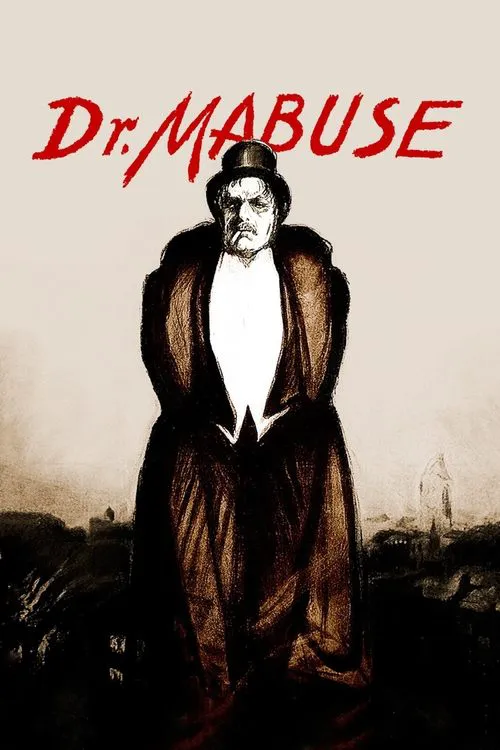Dr. Mabuse, the Gambler

Plot
Set against the backdrop of the vibrant, yet tumultuous, world of pre-World War I Germany, Fritz Lang's 1922 silent masterpiece, Dr. Mabuse, the Gambler, is a thought-provoking and visually stunning critique of the social and economic upheaval of the time. At its center is the enigmatic and calculating Dr. Mabuse, a mastermind of crime and deception, who poses as a genius psychic to orchestrate his nefarious plans. The film opens with Dr. Mabuse and his cohorts successfully pulling off an intricate scheme to steal confidential information regarding a lucrative investment opportunity in the stock exchange. This clandestine operation cements Mabuse's reputation as a formidable thief and grants him the upper hand in the world of high finance. Unbeknownst to the audience, however, is the intricate machinery of deceit and psychological manipulation that governs Mabuse's world, where nothing is as it seems. The plot thickens as Mabuse, ever the chameleon, transforms himself into a dashing aristocrat and attends a captivating performance of the Folies Bergères, a famous Parisian music hall. It is here that he encounters Cara Carozza, the beautiful and alluring star of the show, with whom he shares a tantalizing and manipulative relationship. Mabuse uses his charisma and cunning to extract vital information from Carozza regarding his next intended target, the wealthy and influential Edgar Hull. Meanwhile, Police Commissioner von Wenk is hot on the trail of unraveling the mystery surrounding a string of perplexing crimes. A series of seemingly unrelated incidents involving high-stakes card games and financial embezzlements have piqued the commissioner's interest, and he is determined to track down the mastermind behind these illicit schemes. Unfortunately, von Wenk is hindered by the lack of concrete evidence and the seemingly impenetrable veil of secrecy that shrouds Mabuse's organization. As Mabuse sets his sights on Edgar Hull, he uses his uncanny ability to read people to lure the young millionaire into a high-stakes card game, where he loses a substantial fortune. This carefully orchestrated scheme showcases Mabuse's genius for psychological manipulation and his capacity to effortlessly weave a web of deceit and betrayal. The film's themes of deceit, manipulation, and the exploitation of human vulnerability are eerily prescient and speak to the darker aspects of human nature. Lang's portrayal of Mabuse as a charismatic and calculating figure serves as a testament to the human capacity for both good and evil. By depicting Mabuse's rise to power through a series of meticulously planned and executed schemes, Lang highlights the devastating consequences of unchecked ambition and the destructive power of unchecked human desire. Through the character of Commissioner von Wenk, Lang also raises important questions about the nature of justice and the role of law enforcement in a society plagued by corruption and deception. Von Wenk's tireless efforts to uncover the truth serve as a poignant reminder that the pursuit of justice is an arduous and often Sisyphean task. Ultimately, Dr. Mabuse, the Gambler, is a film about the dark underside of human nature and the devastating consequences of allowing ourselves to be consumed by our baser desires. Lang's masterful direction and the film's opulent, Art Deco-inspired set design create a world that is at once mesmerizing and terrifying, a world in which the lines between reality and illusion are constantly blurred. As the curtain closes on this gripping tale of crime and deception, one is left to ponder the sinister implications of Mabuse's world and the enduring power of his dark and manipulative vision.
Reviews
Recommendations




